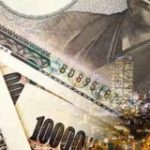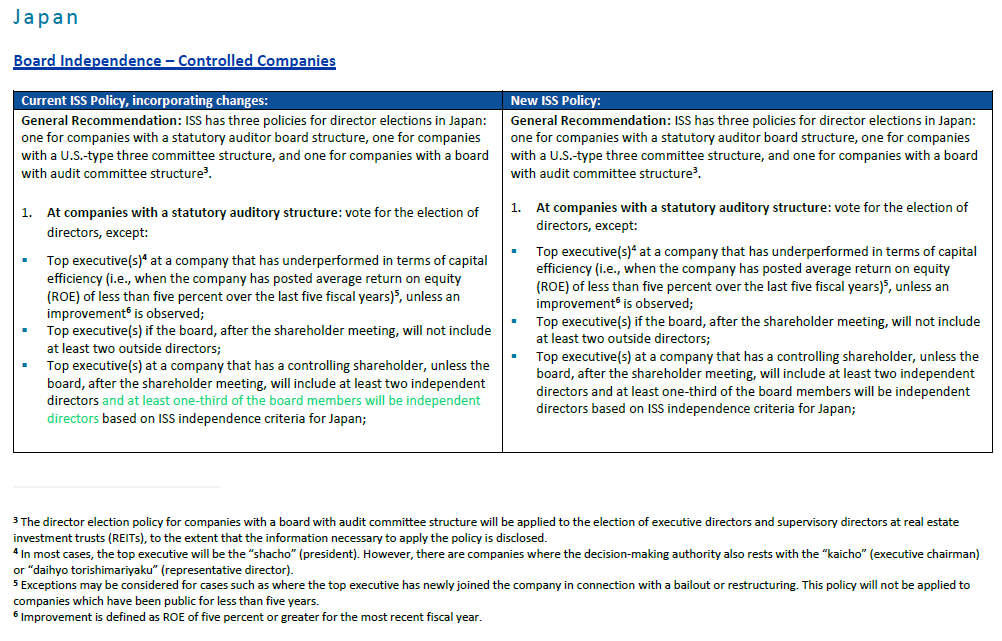“Intensifying pressure to limit global temperature increases and prevent ecological disaster is mounting and corporations and investors — including those in Japan — have an urgent role to play.
That was a key message at the CDP Forum on Decarbonizing Management — Vision to Action held in Tokyo on Nov. 19.
Author: Admin
Japanese Execs Being Paid More, but Compensation Pales Compared to Other Developed Nations (Mercer)
Japanese executives are being paid more now, but the level is still far less that of firms in other developed countries. Note: this article is confusing because “foreign company” on the first chart means “foreign company in Japan” (I think).
https://dime.jp/genre/808383/
Investing.com:“Japan is the Place to Invest” By Cumberland Advisors
“ ….The OECD notes that, despite the current slowdown, the expansion of the Japanese economy that began in late 2012 is the longest in Japan’s postwar history and is projected to continue through 2020. The Bank of Japan’s forecast is similar, with a pick-up in growth expected in Japan’s fiscal year 2021. Continued supportive monetary policy with very low interest rates and large-scale government bond purchases, together with increased public investment and spending to offset the effects of the sales-tax increase, are expected to maintain the expansion. The new U.S.-Japan trade deal and the anticipated elimination of the threat of U.S. automobile tariffs are positive developments. If the current optimism about progress in trade talks between the U.S. and China proves to be justified, Japan’s economy would benefit significantly from the positive effects on the Asia region….“
November 13th “Director Boot Camp” – Another Successful Program! Next Course: February 19th, 2020!
On November 13th, BDTI held its English Director Boot Camp , attended by a number of highly experienced participants. Participants from various companies heard lectures about corporate governance by Nicholas Benes and Andrew Silberman of AMT, and exchanged experiences and opinions at a spacious, comfortable room kindly donated for our use by Cosmo Public Relations, a leading communications and PR firm in Tokyo.
We are planning to hold the next course on Wednesday, February 19th,2020. Sign up early!
Activist Shareholders and Directors, Beware! (Nishimura & Asahi)

When exiting minority holdings, not only beware about insider trading rules, but also short-swing profit rules. “Similar to the securities laws of other jurisdictions, Japanese securities laws also have short swing profit rules that require directors (and equivalents thereto) or 10% or greater shareholders to disgorge profits earned from matching buy-sell transactions (i.e., purchases and sales occurring within a six month window of each other, subject to certain limited exceptions) regardless of whether they are in possession of material non-public information. To avoid a costly surprise, an investor should confirm that it has not acquired any Public Company shares during the six month period leading up to the proposed share sale in order to avoid the perfunctory short swing profit disgorgement rules under Japanese securities laws. “
Some Simple Questions for Softbank
For companies with Softbank Group’s corporate governance structure (a company with Board of Statutory Auditors), Article 362 of Japan’s Company Law stipulates the following:
…..(4) [the] Board of directors may not delegate the decision on the execution of important operations such as the following matters to directors: [which means: “may not delegate these matters to directors or anyone else with executive responsibilities. In other words, the board must approve the following: ]
(i) The disposal of and acceptance of transfer of important assets;
(ii) Borrowing in a significant amount;
(iii) The appointment and dismissal of an important employee including managers;
etc. “”
Because of this language in the law, companies draft up “criteria for board decisions” (“fugi kijun”) , and have them approved by the board. These criteria define numerically (and in other ways if necessary) what will be considered “important” under each of the categories set forth above and therefore will require board approval, e.g. purchases of real estate larger than 1.0 Billion Yen (about $10 million), investments or acquisitions larger than 2 Billion Yen ($20 million), etc. – a “limit amount” referred to below as “X” .
BDTI/METRICAL Joint Research Update: “CG Practice and Value Creation Linkage”
BDTI and METRICAL are continuing to collaborate on finding “linkages between CG practice and value creation.” METRICAL has recently updated the results of our analysis at the end of October 2019 for about 1,800 listed companies representing a market capitalization of more than 10 billion yen. In this update, we see that the number of […]
ASIA TIMES:”Japan Inc’s dividends go on a bull run – at last”

“Now, the moment which Japanese stock aficionados have long dreamed has arrived. Pressure on CEOs to champion shareholder value and raise returns on equity are paying off with a bull market in dividends. Even better, it may be just beginning. Those are the signals emanating from Nomura, one of Japan Inc’s most fabled investment houses. Its analyst reckons that dividends doled out by blue-chip companies grouped in Tokyo Stock Exchange’s first section hit the US$133 billion mark in August. That’s more than twice what companies were shelling out in 2012. And this windfall is coming even as the global trade war crimps growth and economists warn of a rocky 2020. This raises two pivotal questions. First, can the dividend surge continue? Second, what’s the catch?”
Full article :”Japan Inc’s dividends go on a bull run – at last”
FTADVISER:”Japan’s corporate reforms ‘here to stay'”

“Japan’s corporate governance reforms are “here to stay” and will likely be good for investors, according to the manager of the AVI Japan Opportunity trust.
Speaking to FTAdviser, Joe Bauernfreund said he thought the reforms brought forward by Prime Minister Shinzo Abe were more than a political move and would result in higher returns for investors….”

